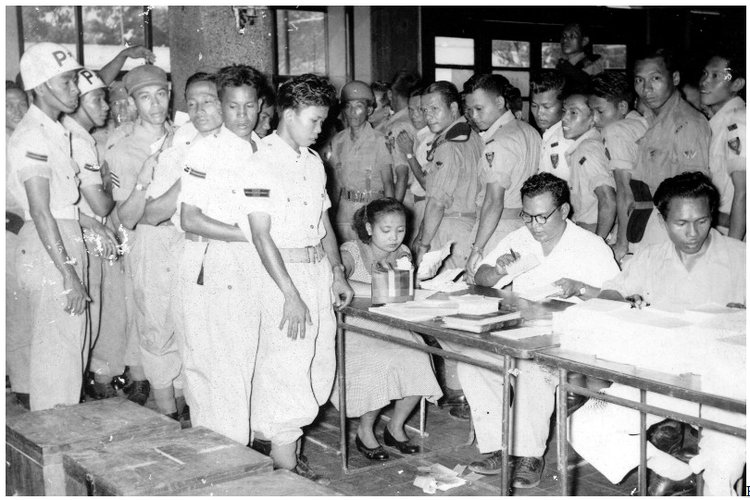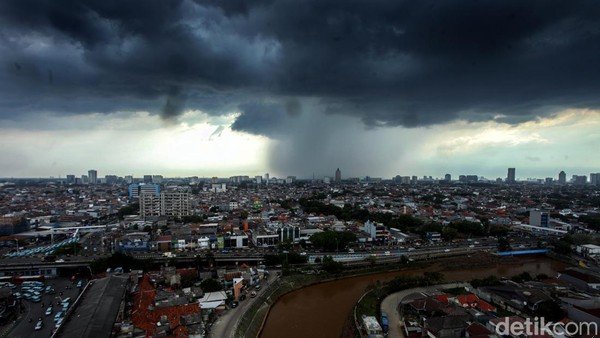
On September 29, 1955, Indonesia witnessed a significant milestone in its history as the first general election took place, aimed at choosing representatives for the nation’s parliament. This pivotal event marked a fundamental shift towards democracy, reflecting the aspirations of a nation eager to define its future. Citizens eagerly participated, exercising their right to vote and shaping their country’s political landscape. As we explore this historic day, we’ll delve into its impact and legacy in Indonesia’s journey toward democracy.
Pada Tanggal 29 September 1955 Dilaksanakan Pemilihan Umum yang Pertama yang Bertujuan untuk Memilih
The date September 29, 1955, marks a significant chapter in Indonesia’s political history. It was on this day that the country held its first general elections, a momentous event aimed at choosing representatives to form the country’s legislative body. This pivotal occasion not only shaped the political landscape of Indonesia but also reflected the aspirations of its people seeking a democratic society.
In this section, we will delve into various aspects surrounding the elections, including the background leading to the elections, the political parties involved, the voting process, and the implications of the results. This comprehensive exploration will help us understand why this election was a cornerstone event in Indonesia’s journey toward democracy.
The Historical Context Leading Up to the Elections
To fully appreciate the significance of the 1955 elections, we must first take a look at Indonesia’s historical context.
– **Colonial Influence**: Indonesia, previously known as the Dutch East Indies, had endured centuries of colonial rule. This period saw the suppression of local governance and the exploitation of resources.
– **Struggle for Independence**: After the Japanese occupation during World War II, Indonesia declared its independence on August 17, 1945. However, the struggle to maintain that independence led to a bloody revolution against Dutch attempts to regain control.
– **Formation of a New Government**: The Indonesian National Revolution eventually succeeded, leading to the formation of the Republic of Indonesia in 1949. The country needed a stable government to ensure its sovereignty and address its diverse population’s needs.
This was the backdrop against which the first general elections were organized. The public’s desire for representation and governance was at an all-time high, and the elections were seen as a way to fulfill that need.
The Role of Political Parties
In 1955, several political parties emerged as key players in the elections. These parties represented various ideologies and interests, creating a vibrant but complex political landscape.
Major Political Parties
– **Partai Nasional Indonesia (PNI)**: Founded by Sukarno, this national party aimed to unite various ethnic groups and promote nationalism.
– **Masyumi Party**: This Islamic party sought to integrate Islamic values into the political framework and appealed to the country’s Muslim majority.
– **Communist Party of Indonesia (PKI)**: A significant force in Indonesian politics, the PKI advocated for class struggle and socialist principles.
– **Socialist Party**: Focusing on social justice, this party attracted those who sought to challenge the status quo and reduce inequalities.
These parties engaged in intense campaigning, trying to win the hearts of voters. Their platforms addressed issues such as education, economic development, and social welfare.
The Voting Process
The 1955 elections were crucial, not just because they were the first but also due to the methods employed to ensure a fair voting process.
Pre-Election Preparations
Before the elections, the government undertook several steps to prepare for voter participation:
– **Voter Registration**: Citizens had to register to vote, ensuring that each individual had a say in the democratic process.
– **Awareness Campaigns**: Various organizations, including non-profits and political parties, organized campaigns to educate the public about voting rights and the importance of participation.
– **Election Monitoring**: To promote transparency, international observers were invited to monitor the elections.
The Voting Day Experience
On September 29, voters flocked to polling stations across the archipelago. This was a moment of pride and empowerment for many Indonesians.
– **Polling Stations**: Setup in various localities, these stations were accessible, allowing citizens from all backgrounds to cast their votes.
– **Voting Procedure**: Voters received ballots that listed the parties and their respective candidates. They marked their choices privately to ensure confidentiality.
– **Community Involvement**: Local leaders and community members played a vital role in encouraging their neighbors to vote, fostering a sense of camaraderie and civic duty.
The excitement and hope for a brighter future filled the air, as many viewed this election as a critical step toward democratic governance.
The Results and Their Implications
When the votes were counted, the results reflected the diverse political landscape of Indonesia.
Election Outcomes
– **Partai Nasional Indonesia (PNI)** emerged as the largest party, securing a significant number of seats in the newly established People’s Consultative Assembly.
– **Masyumi Party** followed closely, indicating the strong influence of Islamic values in Indonesian politics.
– The **Communist Party (PKI)** also gained considerable support, highlighting the mixed ideological preferences of the electorate.
Consequences of the Results
The outcome of the elections had several immediate and long-term implications:
– **Formation of a Coalition Government**: The PNI, as the leading party, had to negotiate with others to form a government. This coalition model would become a characteristic of Indonesian politics in the following years.
– **Heightened Political Awareness**: The elections sparked political engagement among the populace, who became more involved in governance and civic issues.
– **Tensions between Parties**: The varying ideologies led to increasing tensions, particularly between the PKI and nationalist groups, setting the stage for future political conflicts.
The Legacy of the 1955 Elections
The first general elections in Indonesia set a benchmark for future electoral processes. Understanding its legacy helps us appreciate the ongoing challenges and progress in Indonesian democracy.
Encouraging Political Participation
The elections encouraged a sense of agency among the people. Citizens felt empowered to voice their opinions and choose their leaders.
– **Civic Education**: Subsequent elections emphasized the importance of educating voters about their rights and civic responsibilities.
– **Increased Voter Turnout**: The lessons learned from the 1955 elections contributed to higher participation rates in future elections.
Political Developments Post-Election
Post-election, the political landscape continued to evolve. The coalition government struggled to address diverse needs, leading to political instability.
– **The Rise of Authoritarianism**: By the mid-1960s, political tensions escalated, culminating in a coup that shifted Indonesia from democracy to authoritarian rule.
– **Long-term Impacts**: Although the journey towards democracy experienced setbacks, the spirit of the 1955 elections remained alive. It served as a reminder of the people’s desire for representation and accountability.
The Importance of the 1955 Elections Today
Reflecting on the 1955 elections today reveals valuable insights into the continuous struggle for democracy in Indonesia.
– **A Lesson in Civic Engagement**: The elections taught future generations about the power of voting and civic participation.
– **Inspiration for Future Leaders**: The diverse political landscape fostered by the elections inspired new leaders and parties to emerge, seeking to represent the will of the people.
As we analyze the events of September 29, 1955, we see a nation beginning to find its voice in the global arena. The hope and enthusiasm displayed during those elections resonate even now, as Indonesia navigates the complexities of modern democracy.
The story of Indonesia’s first general elections on September 29, 1955, is more than just about a political event. It encapsulates a nation’s aspiration for independence, representation, and a brighter future. The lessons learned from this event continue to shape the political discourse in Indonesia today, reminding us all of the importance of participating in democracy and ensuring that every voice is heard.
Pemilihan Umum Pertama | Pemilu Tahun 1955
Frequently Asked Questions
“`html
What were the main objectives of the first general election in Indonesia?
The main objectives of the first general election held on September 29, 1955, in Indonesia were to establish a representative parliamentary system and to select members for the People’s Consultative Assembly (Majelis Permusyawaratan Rakyat, MPR). This election aimed to create a democratic framework following Indonesia’s independence in 1945, enabling citizens to participate in governance and decision-making processes.
How did the 1955 election impact Indonesia’s political landscape?
The 1955 election significantly shaped Indonesia’s political landscape by introducing a multi-party system and fostering political engagement among the populace. It allowed various political parties to compete, reflecting the diverse interests of Indonesian society. The election’s outcome led to the formation of a coalition government, which influenced subsequent political dynamics and set the foundation for future elections.
What challenges did the organizers face during the 1955 election?
The organizers faced several challenges during the 1955 election, including logistical issues, limited resources, and political tensions among competing factions. In some regions, voters experienced difficulty accessing polling stations due to geographical barriers. Additionally, the political climate was unstable, with ongoing conflicts and differing ideologies among the political parties, which posed threats to a smooth electoral process.
Who were the significant political parties involved in the 1955 election?
Several significant political parties participated in the 1955 election, including the Indonesian National Party (PNI), the Masyumi Party, and the Nahdlatul Ulama. These parties represented various ideologies and interests, ranging from nationalism to religious values. Their participation reflected the political diversity of Indonesia at the time and allowed voters to choose representatives aligned with their beliefs.
What was the voter turnout like for the 1955 general election?
The voter turnout for the 1955 general election was relatively high, with approximately 90% of registered voters participating. This significant turnout demonstrated the enthusiasm and interest of the Indonesian population in the democratic process and their desire to influence the country’s governance after years of colonial rule and conflict.
“`
Final Thoughts
Pada tanggal 29 September 1955 dilaksanakan pemilihan umum yang pertama yang bertujuan untuk memilih wakil rakyat. Ini menandai langkah penting dalam proses demokrasi Indonesia, memberikan suara kepada rakyat untuk menentukan masa depan negara. Pemilu ini tidak hanya mencerminkan keinginan rakyat, tetapi juga menjadi dasar bagi pemerintahan yang lebih representatif. Dengan pemilihan ini, masyarakat Indonesia mulai berperan aktif dalam politik dan pemerintahan mereka.




